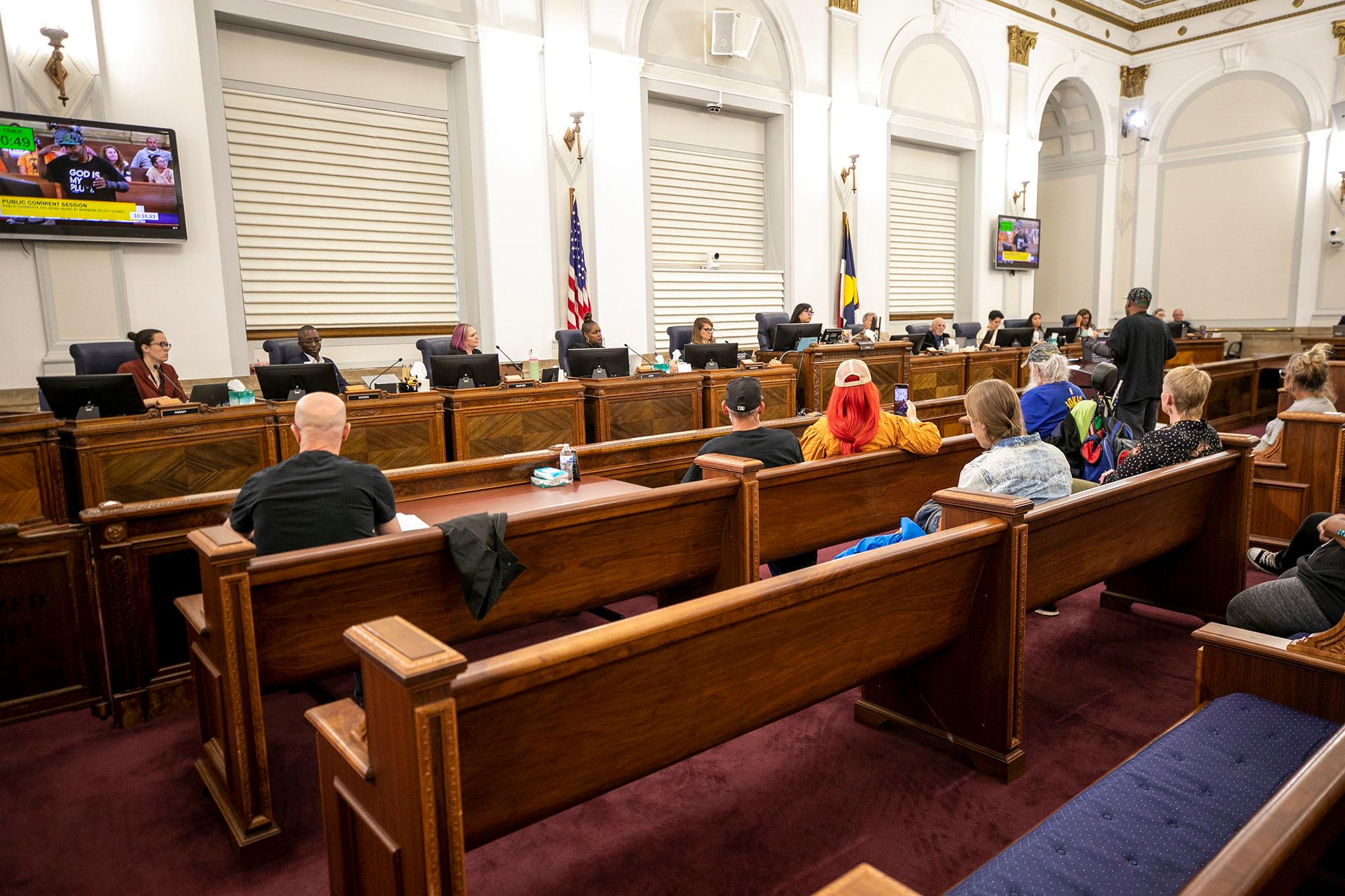Denver's 2024 budget is getting additional money for programs including rental assistance, a basic income pilot program and Denver Health support. The $10.6 million additions come from a list of requests sent by Denver City Council earlier this month.
City Council's funding requests added up to $81 million in budget changes. Mayor Mike Johnston's additions fund seven of the 28 requests at lower levels than requested by Council.
Johnston emphasized the need to keep budget reserves at 15%.
"Since we first released the 2024 proposed budget in September, the fiscal outlook for next year has already shifted," he wrote in a letter to Council last week. "Sales tax revenues are softening, and the scope of our migrant crisis has expanded dramatically. These changing conditions could place significant strain on our 2024 budget and weaken the availability of reserve funds."
The mayor's office added $3 million to emergency rental assistance, but some Councilmembers are asking Johnston for more.
The biggest ask from Council included an additional $17.5 million for emergency rental assistance, on top of the previously budgeted $12.6 million. The request comes as evictions are spiking and could continue to rise next year.
That fund will get an additional $3 million, bringing the city's total commitment to $15.6 million. The 2024 budget invests more city money in rental assistance than previous years, but less money overall due to the end of federal emergency rental assistance funds.
Some experts estimate that the city needs $55 million to meet needs and prevent more people from becoming homeless. On Monday, some City Councilmembers pushed the Mayor's office on more rental assistance as a preventative homeless measure.
"I have to state that this is really not enough," said Councilmember Serena Gonzales-Gutierrez. "If we're going to be good stewards of our taxpayer dollars, we have to look at how we're addressing root causes... If we don't want to continue this vicious cycle, we have to make the investment."
Councilmember Sarah Parady put out a call to city employees who work with the budget to find more dollars for rental assistance and reach out to Council or the Mayor's office directly.
Councilmember Paul Kashmann agreed. "Housing 1,000 people is a drop in the bucket if we don't shut down the pipeline of people that end up homeless," he said.
Another popular program among housing advocates, the Denver Basic Income Project, will get $2 million of a $4 million request to continue the program.
The project's pilot program is about halfway through its first year, with initial results showing success in securing housing and supporting people in need.
"I am very happy to learn that Mayor Johnston has agreed to continue to fund this important project," wrote Councilmember Shontel Lewis in a statement. "While we discuss spending tens of millions to reach the House1000 goal, I ask that we spend some upfront to help people stay in their houses, help people feed their families, help people fund their childcare or to purchase the tools necessary to stay at work, which we have heard in council chambers."
The mayor's office included $3 million of the nearly $17 million request for Denver Health, which has run a multi-million dollar deficit in recent years, largely due to skyrocketing costs from uninsured patients. One-time grants are preventing an $18 million deficit this year, but the hospital says it cannot open as many care beds as it wants to because of financial struggles. Until this additional $3 million, the city's contribution to uninsured costs had stayed steady since 2017.
The budget will use an additional $500,000 to support a fund using federal pandemic recovery money to help local longtime businesses, after City Council requested $1.25 million. Johnston also added $1 million of the approximate $8.5 million request for transit safety initiatives, including money for safe routes to school and speed tables. Of a requested $2.5 million, $2 million will fund the city's new participatory budgeting program through 2024 and 2025. The program lets residents decide how to spend a small pool of the city's money.
While many of the requested budget items received unanimous Council support, Councilmember Darrell Watson was often the sole no-vote on things like additional rental assistance. In a video Friday, he called the process a series of "political games."
"While it would have been simpler for me to just add my name to these requests, the political theater of voting for historic debt spending with no accountability is not why I was elected," he said. "I'm encouraging the administration to reject most of these spending requests not based on the value of the programs but on the lack of accountability for their funding."
Here's what didn't make the cut.
Johnston pointed to the existing budget for additional funding requests for encampment services like bathrooms and trash pickups, the Support Team Assisted Response (STAR) police alternative program, youth violence prevention programs, and a city program for formerly incarcerated people. Johnston said the city is working on building out community engagement through the Mayor's office, in response to an ask to create an office of community empowerment.
The future of other programs is less clear. One request included $3 million to forgive medical debt, something other cities and organizations have done as an anti-poverty measure.
"Developing a program to eliminate debt burdens is a significant undertaking that must be done strategically to ensure we achieve the desired outcome of directly and equitably benefitting Denver residents and not debt collectors or other outside parties," Johnston wrote.
In response to a request for a climate study, Johnston said the city will work to "determine the best approach" for exploring social housing.












